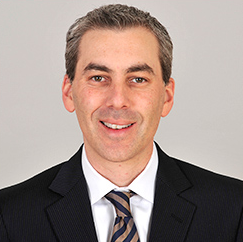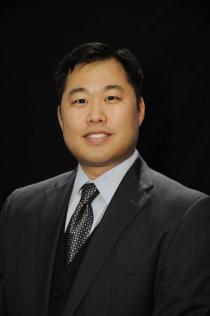Rams Scuttle Forum Selection Clause from Player Contracts
Monday, March 21, 2016 | 0
The Los Angeles Rams arrive in Southern California next month to start their pre-season training camp – and they say they are prepared to have all their player contracts be governed by the laws of the Golden State once they get here.
 Earlier this month, the Rams drew heat from the National Football League Players Association after it offered a contract to a free agent that provided he would be subject to the workers' compensation laws of Missouri – even though the team is leaving St. Louis.
Earlier this month, the Rams drew heat from the National Football League Players Association after it offered a contract to a free agent that provided he would be subject to the workers' compensation laws of Missouri – even though the team is leaving St. Louis.
The NFLPA sent out a memorandum to players saying this provision was "unacceptable" and instructing players that they would not be authorized to accept a contract containing such language. The union said it "always urges agents to refuse 'choice of forum' language in any player contract," and it advised that the appropriate forum for a player on the 2016 Rams roster would be California.
Several commentators suggested the forum selection clause had been included in the contract as an end run around California's most-expensive-in-the-nation comp system – which had been an attractive forum for professional athletes until the legislature passed a law effectively banning cumulative trauma claims from out-of-state professional athletes in 2013.
Missouri holds the No. 21 spot on the Oregon Department of Consumer and Business Services ranking of states by workers' compensation costs. California is No. 1.

Kevin Demoff
But Kevin Demoff, the Rams’ executive vice president for football operations, last week issued a press statement that such speculation was much ado about nothing.
“The team’s legal move to California coincides with the start of the offseason program on April 18,” Demoff told the Los Angeles Times. “As such, all contracts are still subject to Missouri law at time of signing."
He claims the team was able to make "a simple fix" to the contracts, specifying that the law governing the contracts will be the law of California, once the team move is official.
Demoff added that the contract language "really shouldn’t have been an issue," since all the parties to the contracts had understood that contracts signed in previous years transfer to California, so they would have expected any contracts signed this offseason would transfer as well.
After Demoff's announcement, NFLPA Executive Director DeMaurice Smith issued a statement saying that "at least we didn’t have to go to court over this one."
But, he said, "workers' compensation is the right of every American worker," and if "owners of professional sports teams actively try to circumvent this right, or try to rewrite legislation that carves out athletes from this right, our union will always fight back."
So the contractual amendment resolves the NFLPA's concerns – and it was probably a wise move, according to sports law attorneys in California who say they doubt the original contract provision would have been enforced.

Chris Stettler
Chris Stettler, a workers' compensation defense attorney in Bradford & Barthel's Sports Law Division, said that he thought any enforcement effort would be "almost a direct application of the Mazio Royster case."
Royster v. NFL Europe was a panel decision from the Workers' Compensation Appeals Board which held that an athlete's verbal agreement to play professional football for a team in Europe during a phone call to his Southern California home was enough to give the state of California jurisdiction over his claim for benefits based on the cumulative trauma injuries he suffered during the course of his career.
The panel said that if an offer of employment is accepted in California, then the contract of hire will be deemed to have been made in California, even if the actual contract was signed elsewhere. And if the contract of hire is made in California, the panel said, Labor Code Section 5305 provides the California comp system with jurisdiction over all controversies arising out of that worker's industrial injuries, including injuries suffered outside the territorial limits of the state.
Even though the contract Royster signed allegedly had a forum selection clause mandating that he bring his comp claim in Georgia, the panel said the "public policy" expressed by Labor Code Sections 5303 and 5000 trumped that contractual provision.
Section 5303 provides that a worker is entitled to compensation provided by the laws of California if the worker entered into a contract for hire in the state, and Section 5000 provides that no contract can exempt an employer from liability under the California workers' compensation scheme.
Stettler said the Royster case established that the California comp system was going to look at forum selection clauses in contracts formed out-of-state in a different light than contracts formed within the state. The fact that Royster's contract was formed in California is what distinguished his situation from that of former NFL fullback Dennis McKinley, Stettler said.
The WCAB, sitting en banc, booted McKinley v. Arizona Cardinals out of the California comp system in 2014. The board found that McKinley's contract with the Cardinals had an enforceable choice-of-law and choice-of-venue clause requiring him to bring his claim in Arizona.
As things now stand, Stettler said, "if a contract is formed outside California and it has a forum selection clause, it's presumed to be valid absent a showing of significant harm or that it goes against public policy." But, "for a contract formed in California, it's the opposite," and the forum selection clause "is presumed invalid because it contravenes the language in Labor Code Sections 5303, 5000 and 5305."
So if the Rams could get players to sign contracts that designate Missouri law as being controlling outside of California, Stettler said he thought there was "a good chance" the forum selection clause would be enforced, but if the contracts were formed in California, "it'd be pretty tough."
Also, once the team moves to Los Angeles, Stettler said that creates a question of whether the Rams are a California employer. He said he thought the courts are likely to say "once you move to California, you're a California team," and "if you're a California employer, there's automatic jurisdiction here."
Stettler added that Labor Code Section 3600.5(c) – which was added by the passage of Assembly Bill 1309 in 2013 – also was unlikely to pose a hurdle to a Rams player filing a comp claim in California.
The amended version of Section 3600.5 took effect Sept. 15, 2013, and it bars cumulative trauma claims by professional athletes who were only "temporarily within" the state.
Stettler said he thought it would be hard to argue a Rams player was only "temporarily within California" when the team is based there.
AB 1309 was aimed at stemming the flood of claims filed by out-of-state athletes that were clogging up California's board dockets. More than two-thirds of all cumulative trauma filings by athletes in California between 2006 and 2013 came from athletes who played for out-of-state teams, the Los Angeles Times has reported.

Michael Pang
Michael Pang, managing partner of the sports law practice group at Adelson, Testan, Brundo, Novell & Jimenez, said California became an attractive destination for athletes because workers here tend to receive larger awards than in other states.
California is also one of the few states to recognize the cumulative trauma-type claims that are common among athletes as compensable injuries, which also provides players with a means to pursue claims that may be barred by other states' statute of limitations.
Basically, "it's the trifecta of benefits," Pang said.
The passage of AB 1309 has "made it easier for out-of-state teams to stay out of California," and established guidelines for out-of-state players who still want to try to bring claims here. However, since the Rams are becoming a California team, Pang said he doubted Section 3600.5 will keep any of its players out of the state's comp system.
In light of the Rams' announcement regarding the amendment of its player contracts, Pang said he thought it was likely that if a player gets hurt before April 18, Missouri law would apply, unless the player signed his contract in California.
Should the Rams try to force the player to bring the claim in Missouri, Pang said he thought a court would probably allow the claim to proceed in California if the contract was executed in California.
With the way things stand now, he said, "if you sign a contract in California, that trumps just about anything."
And with the Rams starting off their residency in Los Angeles as of April 18, Pang said he thought "it makes sense" for the team to amend their player contracts to provide that California law will govern.


Comments